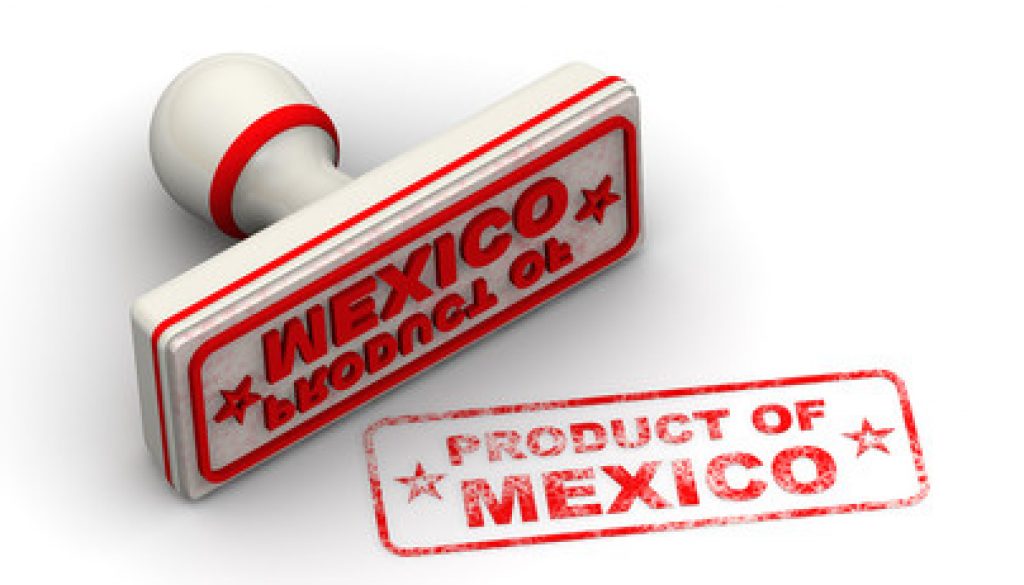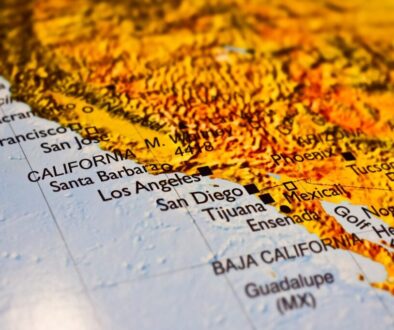Industry in the Bajio Region of Mexico
Prior to the 1980s, the manufacturing industry in the Bajio of Mexico represented approximately twenty percent of the economy of the region, while the share of Gross National Product (GDP) now stands at twenty-six percent in the states that include Guanajuato, Jalisco, Silao, Querétaro, and San Luis Potosí.
Recently, the economy made up of industry in the Bajío has been characterized by an expanding economy that has exceeded that of the nation’s average. This set of circumstances has its origin in the vitality of the region’s manufacturing sector, (more specifically the portion of the industry’s base that accommodates manufactured items for shipment to foreign consumers), which can ramp up its production beyond the limit of domestic demand.
It is of note that the growth of industry in the Bajio had its start during in the last quarter of the last century. Before the 1980s, manufacturing represented twenty percent of the region’s economy, while its share of Gross Domestic Product (GDP) now stands at twenty-six percent in the entities of Guanajuato, Querétaro, Jalisco and San Luis Potosí.
It is with the aperture of Mexico’s borders to foreign trade, through the signing of the GATT, or the General Agreement on Tariffs and Trade, that base of production began to develop. The opening of the economy of Mexico was a positive of the firms that made up industry in the Bajio.
The growth of Industry in the Bajio exceeds that of the national economy as a whole
Another of the beneficial features of industry in the Bajio is the rapid pace of its growth as of late. While this level of activity marked an average yearly growth of 1.7 percent during the years 2003-2016, Bajio industry expansion was 4.6%. This trend continued in 2017 and is being sustained through the beginning of the current year.
An examination of the industrial activity of the first nine months of 2017 showed that industry in the Bajio the grew at a 5% yearly rate. This is in accord with information put forth by local economic development agencies. Again, the pace of industrial production of these 4 states surpasses the growth of 3.7 percent that was enjoyed in the country as a whole.
By state component, San Luis Potosí had the best results in the first nine months of 2017. According to estimates, the production of manufactured products in the state grew 8.5 percent in relation to the same period of 2016; San Luis Potosí followed by Queretaro, which registered a growth of 5.2% during the same period. Despite the uncertainty surrounding the renegotiation of the NAFTA it is also predicted that the economy of the Bajio state of Jalisco will increase at a three percent pace. Much of this growth will take place in the manufacturing sector.
An examination of industry in the Bajio, reveals that it is estimated that the sector’s production will expand at a yearly rate of almost four and one-half percent in the current calendar year. In terms of the expansion of the region’s industrial base, Guanajuato grew at just over two percent in 2017 and is projected to expand at 2.5 percent rate during 2018. Guanajuato state is the most active of the producers in the Bajio.
The industrialization of the Bajío region has been and will continue to be, a clear success. This is the case at a time when using technology from overseas was more convenient when compared to using homegrown know-how. On close inspection, it is evident that the Bajío is an inextricable part of the global chain of production.
Although industry faces the challenge of continuing to evolve at the rate that new technologies are incorporated in the transformation of products, industry in the Bajio, and in Mexico as a whole, there is a possible additional challenge: a potential restriction on foreign trade resulting from the renegotiation of the North American Free Trade Agreement.
Although the economic model that focuses on good shipped from the region has paid off in terms of industry in the Bajío, growth through the satisfaction of the internal market for goods is not being ignored.
Recently the Tecma Group has made the decision to expand along with industry in the Bajio. It is listing the region as one of its locations to be included with already established manufacturing sites in Tijuana, Baja California and Ciudad Juarez, Chihuahua. It’s shelter services for manufacturers in Mexico represent a turnkey means by which factories can establish factories in the maquiladora industry with a minimal amount of risk and the greatest degree of organizational security. Global manufacturers bring their know-how, their equipment and material inputs to Mexico. The Tecma Group takes charge of all activities that are not related to a company’s main manufacturing processes. Among the services included are recruitment and human resources administration, accounting, payroll and the purchase of MRO items, and site selection and facility choice. The Tecma Group’s manufacturing shelter services can also enable companies to cut their manufacturing costs up to fifty percent.





